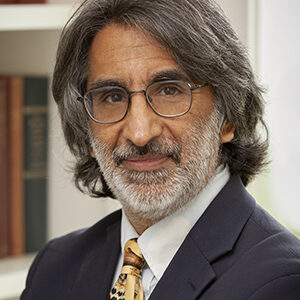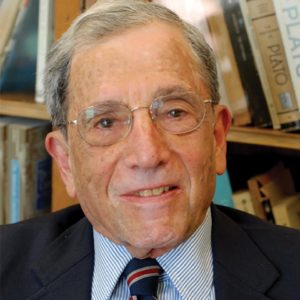Chinua Achebe’s Things Fall Apart & No Longer at Ease
Reflect on two great novels from the father of modern African literature.
July 11–15, 2022
Washington, DC
For the fourth week of the Political Studies Program, we will continue our exploration of the American regime, with a focus on the Black experience.
One seminar will consider the question of slavery during the American Founding, while another will explore the contributions of African Americans – from Douglass to Washington, Du Bois, and Malcolm X – to American political thought.
Image Credit: Statue of Frederick Douglass, Cam Pac Swire via Flickr | Frederick Douglass, an American Slave 01, Byronv2 via Flickr
Diana Schaub on the Life and Political Thought of Frederick Douglass
This course is part of our residential Political Studies Program. Fellows participate in morning seminars, and meet prominent men and women in public life over afternoon and evening sessions. Up to 36 fellows will be selected.

Thomas Merrill is an associate professor in the School of Public Affairs at American University. He is the author of Hume and the Politics of Enlightenment. He is also the co-editor of three edited volumes, including The Political Thought of the Civil War. He was a senior research analyst for the President’s Council on Bioethics during the George W. Bush Administration.

Thomas Merrill is an associate professor in the School of Public Affairs at American University. He is the author of Hume and the Politics of Enlightenment, which won the Delba Winthrop Prize for Best Recent Work in Political Philosophy. He is also the co-editor of three edited volumes, including The Political Thought of the Civil War and has held fellowships from Harvard, Princeton, and the American Enterprise Institute. He was a senior research analyst for the President’s Council on Bioethics during the George W. Bush administration and is the associate director of the Department of Government and, more recently, as department chair.

Diana J. Schaub is Professor of Political Science at Loyola University Maryland and a member of the Hoover Institution’s task force on The Virtues of a Free Society. From 2004 to 2009 she was a member of the President’s Council on Bioethics.

Diana J. Schaub is Professor of Political Science at Loyola University Maryland, a visiting scholar at the American Enterprise Institute, as well as a member of the Hoover Institution’s task force on The Virtues of a Free Society.
She is the author of Erotic Liberalism: Women and Revolution in Montesquieu’s “Persian Letters” (Rowman & Littlefield, 1995), along with a number of book chapters and articles in the fields of political philosophy and American political thought. She is coeditor, along with Amy and Leon Kass of What So Proudly We Hail: The American Soul in Story, Speech, and Song (ISI, 2011). She is a frequent contributor to opinion journals such as the Claremont Review of Books, the Weekly Standard, National Affairs, and the New Atlantis.
From 1994 to 1995 Professor Schaub was the postdoctoral fellow of the Program on Constitutional Government at Harvard University. From 2004 to 2009 she was a member of the President’s Council on Bioethics. She has taught at the University of Michigan at Dearborn and served as assistant editor of The National Interest. She earned an A.B. from Kenyon College, where she was elected to Phi Beta Kappa, and an M.A. and Ph.D. from the University of Chicago.

Martha Bayles
Martha Bayles is an Associate Professor of Humanities at Boston College, where she teaches a year-long course titled, “From Homer to Dante” and various senior seminars. Her research centers around popular culture and cultural history. She has previously served as a lecturer at Harvard University and Claremont McKenna College.

Akhil Reed Amar
Akhil Reed Amar is Sterling Professor of Law and Political Science at Yale University, where he teaches constitutional law in both Yale College and Yale Law School. He is Yale’s only currently active professor to have won the University’s unofficial triple crown — the Sterling Chair for scholarship, the DeVane Medal for teaching, and the Lamar Award for alumni service. His latest and most ambitious book, The Words That Made Us: America’s Constitutional Conversation, 1760-1840, came out in May 2021. He has recently launched a weekly podcast, Amarica’s Constitution.

Adam J. White
Adam J. White is a Resident Scholar at the American Enterprise Institute, and an Assistant Professor at George Mason University’s Antonin Scalia Law School, where he also directs the Gray Center for the Study of the Administrative State at George Mason University’s Antonin Scalia Law School.

Ralph Lerner
Ralph Lerner is the Benjamin Franklin Professor Emeritus in the College and professor emeritus in the Committee on Social Thought at the University of Chicago. He is the author, most recently, of Naïve Readings: Reveilles Political and Philosophic (University of Chicago Press).

Thomas Merrill
Thomas Merrill is an associate professor in the School of Public Affairs at American University. He is the author of Hume and the Politics of Enlightenment. He is also the co-editor of three edited volumes, including The Political Thought of the Civil War.

Diana Schaub
Diana J. Schaub is Professor of Political Science at Loyola University Maryland and a member of the Hoover Institution’s task force on The Virtues of a Free Society. From 2004 to 2009 she was a member of the President’s Council on Bioethics.